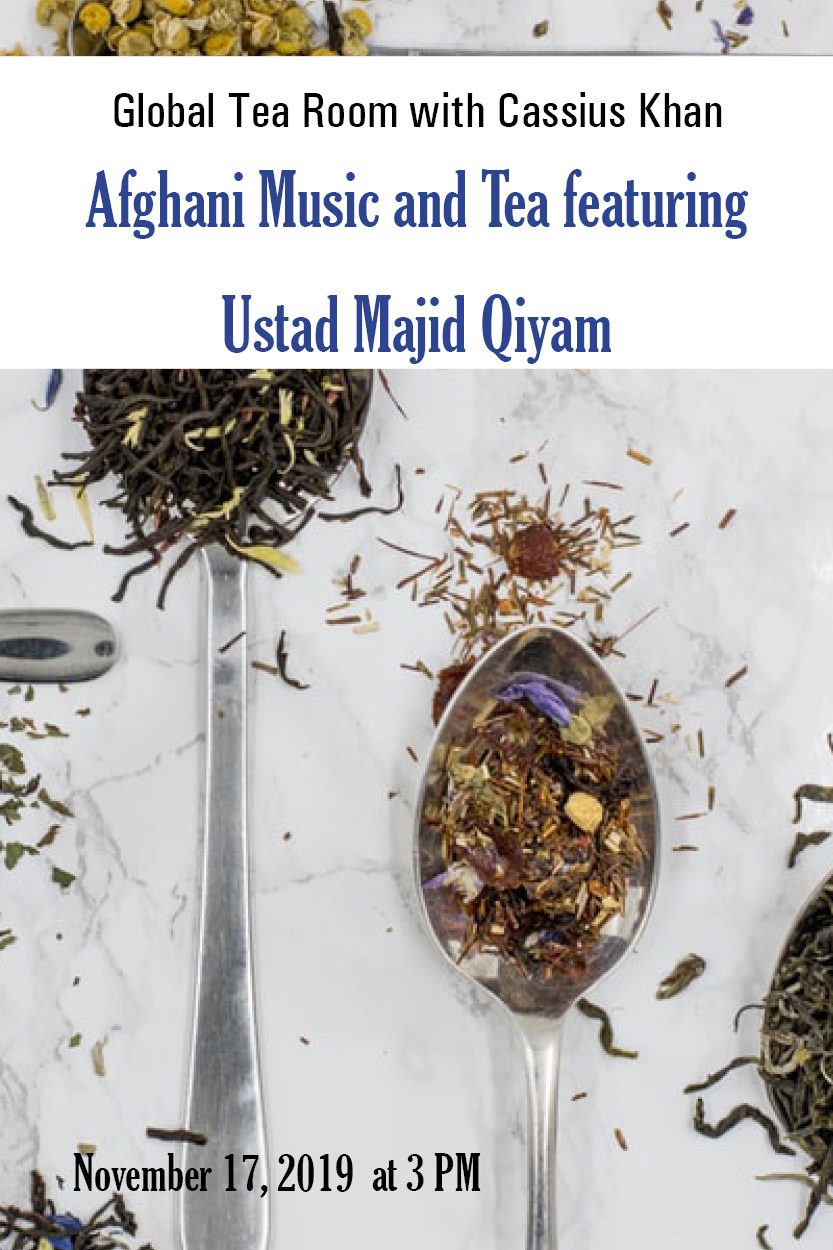Join curator/host Cassius Khan and a variety of highly accomplished musicians and tea specialists as they immerse you in the cultures of the world, bringing you conection to generations past through songs and experiences that have endured for thousands of years.
On November 17th, join Cassius and renowned Afghani musician Ustad Majid Qiyam for an illuminating afternoon of music and refreshments. This event is free and welcome to all.

About Cassius Khan
Canada’s most recognizable Indian Classical musician, the globally renowned Cassius Khan is a performer of combining the Classical styles of Ghazal/Thumri singing and the Tabla, the North Indian pair of drums and presents both, simultaneously. He is the senior disciples of the late Malika e Tarannum Mushtari Begum (Dec 25th 1934-March 14th 2004) and Tabla maestro Ustad Rukhsar Ali, who belongs to the Delhi Gharana of Tabla playing. Combining Indian Classical singing with Tabla, for a single artist, is a first in Indian classical music. Many noted Indian Classical Music gurus have proclaimed that singing and playing Tabla in unison is a difficult feat to master as Tabla playing requires skill and strength, as well as an absolute concentration on the kaleidoscopic rhythm patterns of the repertoire, and singing requires absolute skill in the execution of notes and vibrations of the voice and excellent breathing control. Khan’s trademark is performing the extremely rare and difficult “Tarannum Ang Gayaki style” in which the lyrics share a different metre from the rhythm but they join at the Sum point in a certain phrase.

About Ustad Majid Qiyam
Majid Qiyam took up the tabla at age ten at the urging of his father and his brother, Seddiq, a famous Afghan musician. Times were peaceful then, and under the tutelage of his brother, he also took up the rabab and harmonium and learned to sing.
In 1982, a group of musicians came to Afghanistan to teach Indian classical music. Majid was eager to learn and studied with Ustad Khan for four years. Life was good in Khabul. Majid worked as a journalist, and sang and played the sitar, rabab, harmonium, and tabla. In 1996 however, the Taliban came into power and everything changed. Music was outlawed, some musicians fled and others were murdered. Late one night, the Qiyam family door was broken down and Majid’s sitar and other musical instruments were all destroyed. They burned his books and family photos, and took his house, but fortunately he was given the chance to escape from Afghanistan “empty handed” with his family of six.
Majid and his family fled to Kyrgyzstan. There he was supported by the Afghanistan Artist Union, and began to teach music. He had a large body of students but after five years decided to immigrate to Canada with his family.
Majid Qiyam is another of the many talented artists that now calls Canada his home. He continues to give concerts in all kinds of venues, often performing with Cassius Khan, and teaching the rabab and Afghan folk music.


